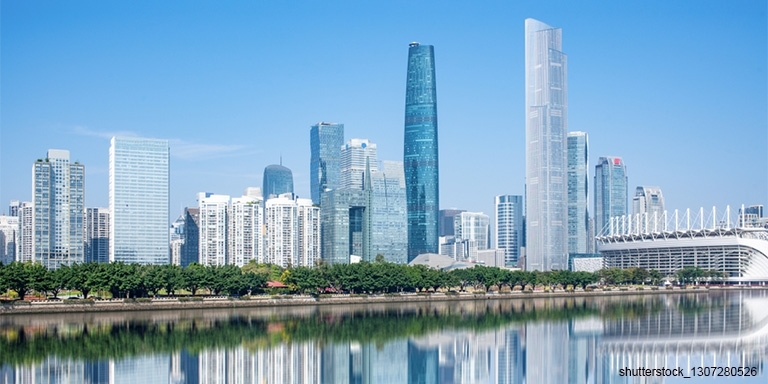Business policies and regulations in Mainland China are different from those of Hong Kong – how should Hong Kong companies enter the mainland market and what should be paid attention to before opening?
The Hong Kong Trade Development Council held the “T-box into the Greater Bay Area Series: Business Practice Group Consultation Session”. The first consultation session described Types and Processes of Establishing a Company and invited HKTDC Economics and Trade Research.

What is the difference between limited liability companies in Hong Kong and the mainland?
A limited liability company is the most common type in the mainland. Less than 50 shareholders invest capital in the firm. The registered capital is the paid-in contribution of all shareholders registered with the Market Supervision Bureau. It is worth noting that once a limited liability company files for bankruptcy, it only needs to bear limited liability within the investment quota, which is equivalent to the capital limit when the company files for bankruptcy.
A Limited Stock Company has two to 200 owners, the entire capital of the company is equivalent shares, and shareholders are responsible for the company to the extent of the shares they hold. Adopting this structure streamlines the process if the firm goes public.
What other types of enterprise are there in the mainland?
A partnership typically has no major assets and mainly relies on the talent of its members. This structure is more suitable for accounting, legal and other professional service industries.
A sole proprietorship is funded and operated by an individual natural person, owned and controlled by the individual, and the individual bears the operating risks and enjoys all the operating benefits.
What is company name verification?
An enterprise must verify the company name after selecting the company type according to business needs. Name verification is a check as to whether the company name complies with the requirements of mainland laws, policies and regulations. The name of the mainland company must cover the region, trade name and industry category, such as "Shanghai XX Science and Technology Development Co., Ltd.". "Shanghai" is the area covered, "XX" is the company name chosen by the enterprise itself, "Technology Development" and "Limited" is the industry type and company type. Mainland enterprises must have a Chinese name and cannot use Roman text and Arabic numerals for names.
What potential pitfalls are there with Company Name Verification?
If a national name such as "China" is included, it is worth paying more attention. If the name is "Public China Co., Ltd.", it means there cannot be only one company, and it may have several. Only when the head office of a company owns subsidiaries spanning at least two provinces and cities can it be approved.
Broadly, what is the process of setting up a company in the Mainland?
The mainland government does not have strict requirements but enterprises generally need to provide the company’s equity and organisational structures. Most SMEs have a very simple and clear structure and the problems involved are not major. However, for companies preparing to go public or invest in funds, shareholding structure and corporate organisational structure are relatively complex, and relevant disclosure documents must be prepared when establishing a company.
The steps are as follows:
1: Company name approval
2: Apply for a business license and corresponding permits (if required)
3: Apply for official seal engraving and related filing
4: Go through tax registration
5: Open a bank account and foreign-exchange registration
Mainland taxation is different from that of Hong Kong. What are the precautions for the mainland taxation system?
In the mainland, the Enterprise Income Tax has been uniformly levied at 25% regardless of company type. However qualified high-tech manufacturing enterprises and technologically advanced service industries can enjoy a 15% level. Central and western development regions such as Gansu, Qinghai, Xinjiang and Tibet also offer 15% tax incentives. Individual income tax is calculated progressively. Anyone with a monthly income exceeding Rmb5,000 (US$741) is required to pay personal income tax. The tax rate is progressive from 3% to 45%.

Related link
T-box

